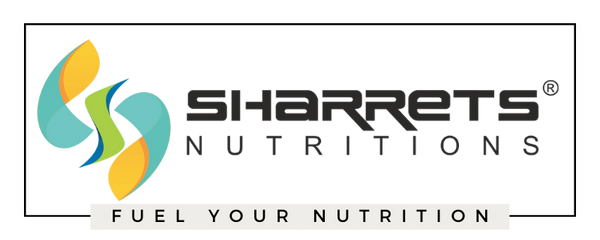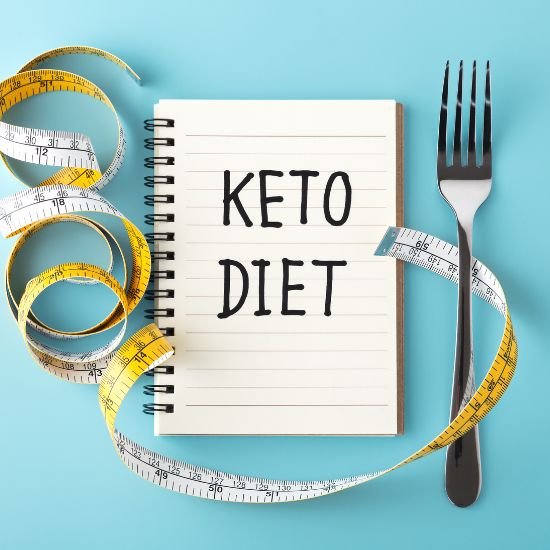
What Are Ketones And How Do They Promote Fat Loss?
Share
Ketones are the ultimate Fuel !

Ketosis is an extremely powerful tool which is used by many who seek to lose weight. It can be a little tough to adapt to at first, but once you do, you will see results in no time. Ensure that if you are eating moderately high levels of fat, stick to healthy fats from natural sources such as nuts, seeds and fruit such as avocados. Stay away from processed garbage and trans fats!
Ketosis is a metabolic state which occurs when ketone bodies (KB) in the blood surpass the usual levels. The body enters a Ketogenic state, where it is essentially burning fat for fuel.
But what really is ketosis? How does it promote fat loss , and how does it occur ?
What are ketones?
Ketones, or a ketone body (KB), are formed when fats and fatty acids are utilized as a fuel source. The body will usually obtain the energy it requires from carbohydrates in our diets. When we do not get enough carbohydrates, stored fat is broken down.
Ketone bodies can accumulate in the body. High levels of ketones are toxic and can lead to a condition known as ketoacidosis. The condition is be common among type 1 diabetics and in some cases can be fatal.
Those who do not suffer from diabetes do not have anything to worry about though, since the production of ketone bodies is regulated, allowing the blood to return to its normal pH level.
There are tests for ketones that can be carried out. One is to use a blood glucose meter, which is able to test for ketones as well as glucose levels. You can also use urine tests.
How does ketosis work?
On a normal, high carbohydrate diet, several things happen. This first is a rise in blood glucose levels.This is because the diet is high in glucose, meaning that naturally the concentration of glucose in the blood will rise.
As a result, the pancreas secretes the hormone insulin, to counteract the increased levels of glucose.
The insulin shuttles the glucose into the body’s cells, storing it in the form of glycogen. This is insoluble so can be stored without being broken down or metabolized. Some of the glucose is utilized as energy, for our bodies to carry out their natural processes.
Additionally, if the levels of blood glucose fall, the pancreas will secrete a hormone known as glucagon. This hormone breaks down the stored glycogen into glucose, where it can be metabolized by the body to release energy.
On a Ketogenic diet, the process is different. The body’s glycogen stores will begin to deplete as glucose is required for energy. When this isn’t replenished, we have to turn to fatty acids for energy.
Fatty acids from the fat tissues in our bodies are mobilized during beta-oxidation. During this process, ketone bodies are released from the liver. This is because the liver is unable to utilize them, so they are sent to the brain where they are used as fuel.
The fatty acids which have been freed can also be used as fuel, which is essentially when the fat is ‘burned’.
What are the benefits of being in ketosis?
There are many benefits which you can achieve through being in ketosis.
✓ Fat burning
The main benefit of being ketosis is the ability for your body to use fat as a fuel source. This is much harder to do on a diet which is high in carbohydrates. During ketosis, the body may have the ability to become an efficient fat burning machine!
For this reason, the Ketogenic diet is extremely popular for people who are looking to lose weight, whether it be to get into shape or if they are preparing for a competition or photo-shoot.
✓ Lower insulin levels
Another benefit of being in ketosis is that your body will secrete less insulin. This is beneficial because insulin can inhibit the use of fatty acids for energy, whilst also promoting fat storage due to the fact that it ‘shuttles’ glucose into the cells, as we have already learned.
What’s more, low levels of insulin promote beneficial hormones to be released into the body, such as growth hormones, and others which can help with building muscle.
✓ Appetite is supressed
Whilst following a Ketogenic diet, it has been shown that you can experience a supressed appetite, compared to a diet rich in carbohydrates, which can increase your hunger levels. This is because gram for gram, fat contains more calories than carbs do (9 / gram vs 4 / gram). Furthermore, ketones impact cholecystokinin (CKK), a hormone which makes you feel fuller.
It also has an impact on ghrelin, the hunger hormone. It’s fairly obvious that with a smaller appetite, you will eat less and consequently lose more weight.
✓ Saves protein
This one may sound a little odd. Occasionally, protein can be oxidized to generate glucose when there are not enough carbohydrates for energy.
When following a Ketogenic diet, due to the abundance of fatty acids, protein does not need to be converted for energy and therefore more is available for our muscles. This means that you will be able to build more muscle, whilst also preventing the breakdown of muscle if you are on a heavily catabolic Ketogenic diet.
How do enter ketosis?
Now that you have heard all of the wonderful things which ketosis can do for you, I am sure you are wondering just one thing: how can you enter ketosis?
The truth is, the answer varies depending on the individual. Many people just think that cutting carbs will allow them to enter a Ketogenic state. This is incorrect.
Whilst yes, you do need to cut your carbs, many underestimate by how much you have to do so in order to see results. It is generally accepted that if you want to enter ketosis, your carbohydrate intake should not exceed 50 grams per day.
As for protein and fat, it is more up to you. Many people find that keeping their fat intake higher is more beneficial. As a rule of thumb, I would begin by setting your fat intake as the majority of your calories; around 60 to 70%. This means that your protein intake should make up around 20 to 30% of your daily calorie intake.
















